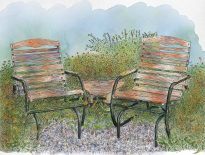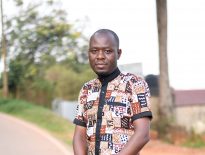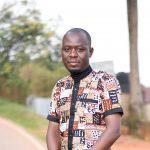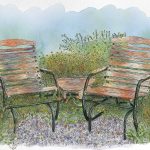The universal narrative about Africa is the prevalence of poverty, conflict, systemic violence, dwindling economies and corruption. Perhaps many other parts of the world find Africa synonymous with backwardness and underdevelopment, a permanent antiquated continent.
While poverty is more endemic in Africa, the continent remains a home that many constantly return to. Africa’s endowment with natural resources helps one to provide context when comprehending the continent’s socioeconomic background.
If one attempts to reinterpret the famous adage, “Life began in Africa”, it makes sense to attribute this to the continent’s ability of being home to multiple resources, people, cultures, and customs. To expand this adage; Africa remains a continent that is home to fifty-four countries. As one scholar, Ian Tattersal (2009) asserts, the continent “is in a profound sense the fount of human evolution”. And this is evident in how it remains home to human origins; being the only continent with fossil evidence of human remains displayed in different phases of their development. It, therefore, makes sense why it would be the perfect home for significant historic cultural landscapes such as the ‘Cradle of Humankind’.
Read – A Place Called Elsewhere – A Creative Nonfiction by Chidinma Nnalue, Nigeria
However, Africa’s ability in being a ‘home’ is not only limited to human geography and cultural landscapes or even contemporary cultures. It is known for being home to diversity with its myriad cultural groups and practices, traditional customs, and varying belief systems, with one of its countries, South Africa, having been dubbed “the rainbow nation” by the late Archbishop Desmond Tutu, which would also have been fitting for the entire continent.
It is also home to vast resources, with the Northern Cape in South Africa being enriched with some of the richest kimberlite dykes in the world, which are a significant source of primary diamonds. Furthermore, it is home to the largest diamond mine the world has ever seen; the ‘Big Hole’, which has produced a portion of the world’s largest diamonds with three tons of them having been excavated from it during the diamond rush (Sardone, 2019).
The adage, “dig a hole in Africa’s soil and you’ll bump into diamonds or gold”, is an indication of the wealth of resources that the continent is home to. It is revealed in the palpable ability of the Democratic Republic of Congo to sheath the earth’s second-largest rainforest; the Congo Basin, which Is significant for regulating Climate Change (White et al, 2019). It is evidenced in Guinea being home to the world’s largest bauxite reserve. Seven years ago, it is reflected in the United Nations’ Commission for Africa data whose statistics revealed that the continent contains over fifty per cent of the world’s platinum and over seventy per cent of its diamonds (Igbhobor, 2014).
Read – The Perfects That Define My People – An Article by Gana Jemimah, Nigeria
Despite the aforementioned, Africa is also home to multiple countries that exist on the other end of the wealth spectrum, with nine out of ten of the world’s poorest countries coming from the continent. Ironically, the factors which have contributed to such pauperism are other negative and nefarious elements that the continent is unfortunately home to, and perhaps this explains the phenomenon known as the “curse of Africa”. This phenomenon seeks to illustrate the oxymoronic nature of the African continent; the indisputable richness in natural resources coexisting with stark poverty, exacerbated by structural factors such as human rights injustices, lack of access to quality healthcare and education system, lack of proper infrastructure, poor economic management, and the embezzlement of state resources by state officials. Thus, while Africa is home to wealth, it is also home to poverty; It is home to social, economic, and unending political issues coupled with authoritarianism. As Emeka Duruigbo (2005) asserts, “Africa presents an unnerving paradox of poverty amid plenty. It is home to political leaders who constantly enrich themselves by embezzling state funds while leaving those who voted them into power impoverished. It is home to extreme corruption that has been so institutionalised that, when he wrote on ‘African leaders & Corruption’, Kalil Timamy (2005) said “embezzlement has become the strategic sense of governance.”
But Africa is also home to potential. It is home to a fast-growing youth population in the whole world. Having a relatively young population as the backbone of Africa is an indication of the potential that the continent has. It signals not only an abundance in the supply of labour which is a primary production, but of transformative ideas and policy implementations that will shape a renewed continent.
Read – When in Eden – An Article by Halla Immaculate, Tanzania
Africa is home to social activists, feminists, artists; sculptors, writers, and actors. It is home to Mama Esther Mahlangu; the first woman and first African to take part in the BMW Arts collection 31 years ago. It is home to brilliant and compelling writers such as Chimamanda Ngozi Adichie and Tsitsi Dangarembga. It is home to Chinua Achebe; a gentle giant of African literature, whose work remains widely studied throughout the world. It is home to all who live in it. Africa connotates more than just a home. It is who we are, and the place for which we feel the deepest affection.
This Creative Nonfiction was published in the September 2022 edition of the WSA magazine.
Please click here to download the Magazine.
The WSA Magazine is published by a team of professionals and downloadable for free. If you would like to support our work, please buy us coffee – https://www.buymeacoffee.com/wsamagazine







